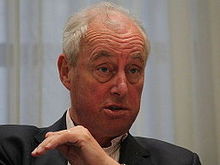
UK businesses risk paying too much for their gas and power under the new regulatory regime implemented by Ofgem, MPs have warned.
Network charges make up almost a quarter of energy bills. In a report published today, the Energy and Climate Change expressed concern that the regulator is failing to keep network costs down because it has set targets for network companies too low. That means that under the new regime, customers will face higher bills than necessary.
The Committee suggested that the watchdog and the Department of Energy & Climate Change find ways to ensure power companies: connect distributed generation faster to the system; that network companies must serve notice of price hikes much earlier; and potentially, do away with locational pricing. It urged Ofgem to set tougher penalties for network leakages and losses.
The report also recommended that the new eight year price control period be subject to an external audit midway through and called for the networks’ charging methodologies to be simplified so that they could be more easily compared and scrutinised.
Although the Committee acknowledged that the move to the eight year RIIO regulatory framework (away from the previous RPI-X formula) was a work in progress, it expressed concern that the gas companies now working to the new regime had appeared to hit virtually all targets in year one. Because of that, it was likely that all distributors, and not just the highest performers, would receive the maximum incentive revenue possible under the regime. That means higher bills.
The Committee also questioned Ofgem’s maths. Because network firms can choose to take a fast-tracked price review under RIIO, the one electricity distributor that chose that approach, Western Power Distribution, could potentially be left with a windfall of some £860 million. Its customers will pick up that tab.
Other recommendations included more incentives focused on the rollout of technologies such as smart grids.
Launching the report, Energy and Climate Change Committee Chair, Tim Yeo (pictured), said:
“The costs charged by the companies that have a near monopoly over the UK’s gas and electricity networks are often overlooked when energy bills are discussed. But network costs are one of the main reasons dual fuel bills have risen in recent years.
“Ofgem has created a new regulatory framework designed to ensure that network costs are competitive and that profits aren’t excessive, but there is clear evidence that the companies are making higher profits than expected.
“Ofgem’s Chief Executive told us that we would have to wait eight years to see whether value for money was being delivered for bill payers. This is too long for hard pressed consumers to wait.”
In response, Ofgem issued the following statement:
“Ofgem notes the committee’s views and welcomes debate on the regulation of the energy network and believes our regulation has delivered value for money. Britain’s energy network is 17% cheaper in real terms than 25 years ago, £80 billion of investment has been secured, and reliability has improved by 30%.
“We are in the process of implementing a number of the actions the report highlights, including introducing more competition to networks and looking to increase the notification period of network charges. Additionally, we estimate that our innovation stimulus will see companies realise around £900 million of benefits to consumers in the next eight years.”
Read the full report here.



